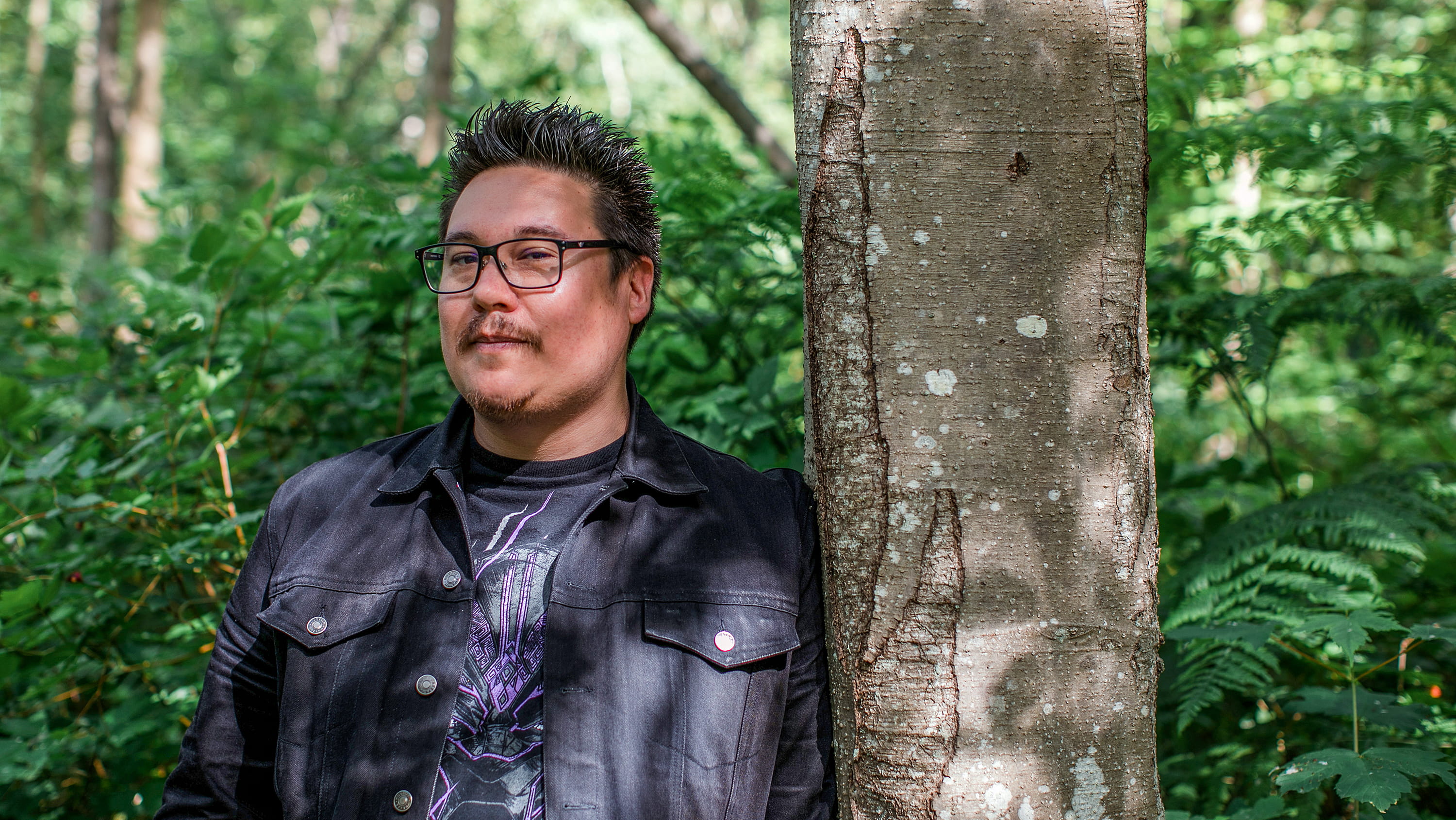Jordan Abel recalls seeing the 1992 film The Last of the Mohicans as a child and being oddly troubled by it.
Not in the ways he might have as an adult — irked at the abundant stereotypes populating a colonial conquest narrative. It was more a vague feeling of invisibility, a nagging notion that he “should” have seen himself somewhere in the narrative but didn’t.
“I didn’t understand how, if at all, I fit in, and that created some tension for me,” says the poet, novelist and professor in the Department of English and Film Studies at the University of Alberta. “The movie figured quite prominently in the formative years of my life.”
Years later, Abel returned to James Fenimore Cooper’s settler classic — the second novel in his series set during the French and Indian War of 1757 — to write his own debut novel, Empty Spaces, which recently won the 2024 Governor General’s Literary Award for fiction.
His renewed interest in Last of the Mohicans was partly inspired by Roxanne Dunbar-Ortiz’s renowned critical study, An Indigenous People’s History of the United States, in which she argues that Cooper’s novel was “instrumental in nullifying the guilt related to American Indian genocide,” says Abel.
Reimagining Cooper’s descriptions of landscape was one way Abel could come to terms with his own place in the world, giving him a deeper understanding of the various relationships contemporary Indigenous people — urban or rural — have to the land, and the ways in which they have been dispossessed from traditional territory.
“I went through that book and I pulled out all of Cooper’s descriptions of rocks, trees, shrubs and rivers, and I started writing around them, between them and beyond them.”
Cooper’s descriptions appear in the first chapter of Empty Spaces, establishing the structure for the rest of the book. Each chapter doubles back to rewrite the previous one, with a 21st-century consciousness gradually emerging as the narrative progresses.
The novel explores in part the plight of the contemporary Indigenous subject — “displacement from traditional territory and having no alternative but to relate to the land through fiction, imagination and metaphor,” says Abel.
When he started writing his book, he worried it might be too demanding for readers, that no one would get the circular structure. The book starts with about 1,000 words from the end of his previous work, Nishga, a creative memoir probing the darkest moments of his family’s history.
That work — taking up intergenerational trauma and “the violence that stems outward from residential schools” — was produced for his PhD dissertation at Simon Fraser University before he was hired at the U of A as an assistant professor in 2018. He has also written the poetry collections The Place of Scraps, Un/inhabited and Injun, for which he won the Griffin Poetry Prize in 2017.
It turns out Abel needn’t have worried about the challenging nature of Empty Spaces. Readers did indeed respond, with enthusiasm. So did the jury for the Governor General’s award.
“Abel’s compelling and hypnotic prose, with its reverse beginnings, repetition, rewriting and revision, feels like settling into a hot spring that grounds the reader in the present moment. Beautiful, poetic and revelatory,” write the adjudicators in their summation for the prize.
Abel encourages readers to “stick with the novel’s difficulty,” and says that with patience it will yield rewards. He describes the book’s nature as akin to ambient music or soundscape.
“I call it ambient reading, because it requires a different kind of attention than traditional fiction — you’re in a different zone,” he says. “Empty Spaces requires you to let go of a fixed attention to things like character, plot and dialogue — all the things we expect in a novel.”
There is no central character per se, says Abel, but there is a collective noun, “a polyphonic perspective or triangulation of human bodies, non-human bodies and the land.”
Abel is already at work on a sequel of sorts, taking up threads that first appeared in Nishga. Called Dad Era, it explores Indigenous parenthood and knowledge transmission, featuring a juxtaposition of his own work alongside his father’s visual art.
